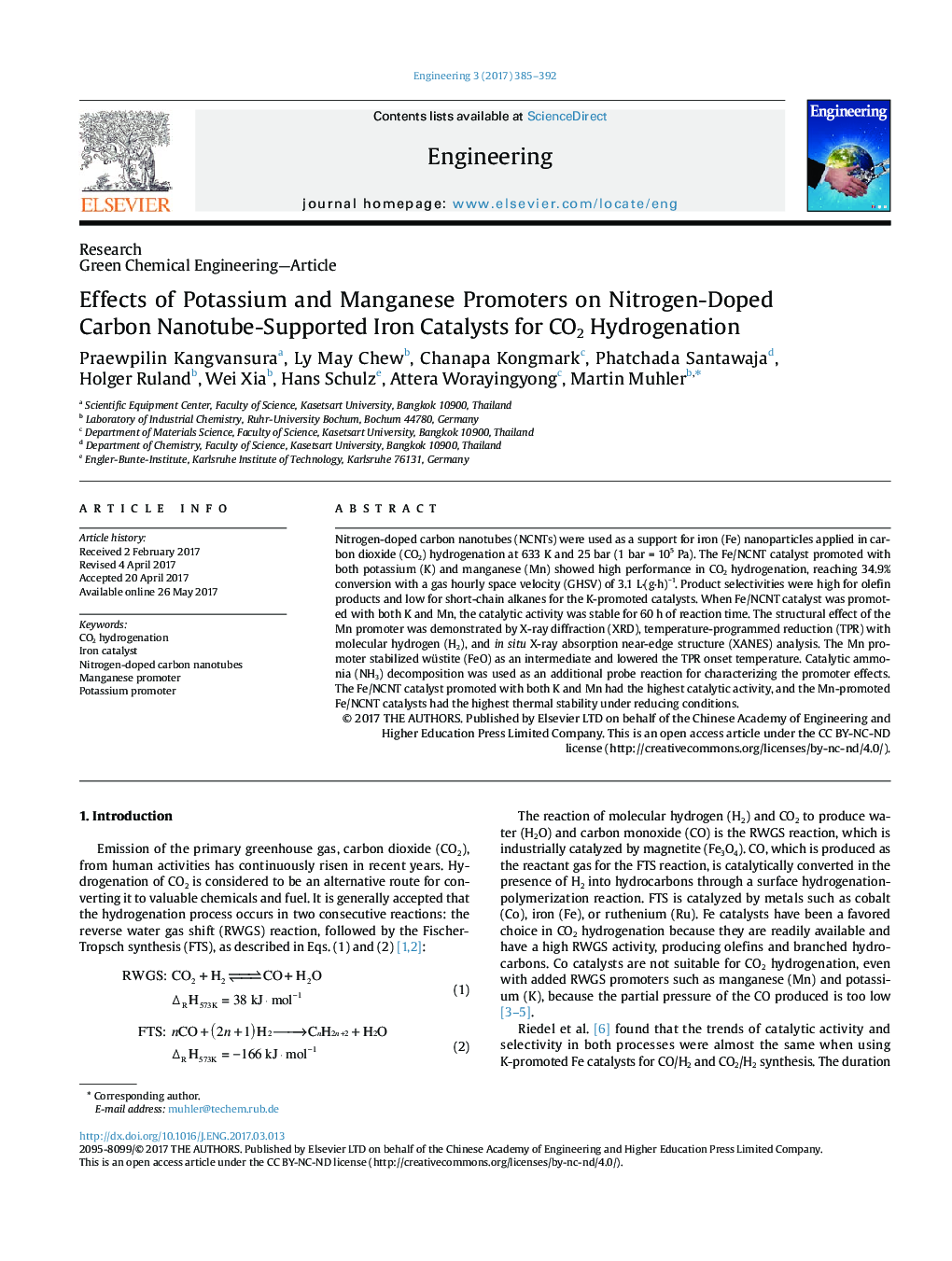| Article ID | Journal | Published Year | Pages | File Type |
|---|---|---|---|---|
| 6893537 | Engineering | 2017 | 8 Pages |
Abstract
Nitrogen-doped carbon nanotubes (NCNTs) were used as a support for iron (Fe) nanoparticles applied in carbon dioxide (CO2) hydrogenation at 633 K and 25 bar (1 bar = 105 Pa). The Fe/NCNT catalyst promoted with both potassium (K) and manganese (Mn) showed high performance in CO2 hydrogenation, reaching 34.9% conversion with a gas hourly space velocity (GHSV) of 3.1 L·(g·h)â1. Product selectivities were high for olefin products and low for short-chain alkanes for the K-promoted catalysts. When Fe/NCNT catalyst was promoted with both K and Mn, the catalytic activity was stable for 60 h of reaction time. The structural effect of the Mn promoter was demonstrated by X-ray diffraction (XRD), temperature-programmed reduction (TPR) with molecular hydrogen (H2), and in situ X-ray absorption near-edge structure (XANES) analysis. The Mn promoter stabilized wüstite (FeO) as an intermediate and lowered the TPR onset temperature. Catalytic ammonia (NH3) decomposition was used as an additional probe reaction for characterizing the promoter effects. The Fe/NCNT catalyst promoted with both K and Mn had the highest catalytic activity, and the Mn-promoted Fe/NCNT catalysts had the highest thermal stability under reducing conditions.
Related Topics
Physical Sciences and Engineering
Computer Science
Computer Science (General)
Authors
Praewpilin Kangvansura, Ly May Chew, Chanapa Kongmark, Phatchada Santawaja, Holger Ruland, Wei Xia, Hans Schulz, Attera Worayingyong, Martin Muhler,
